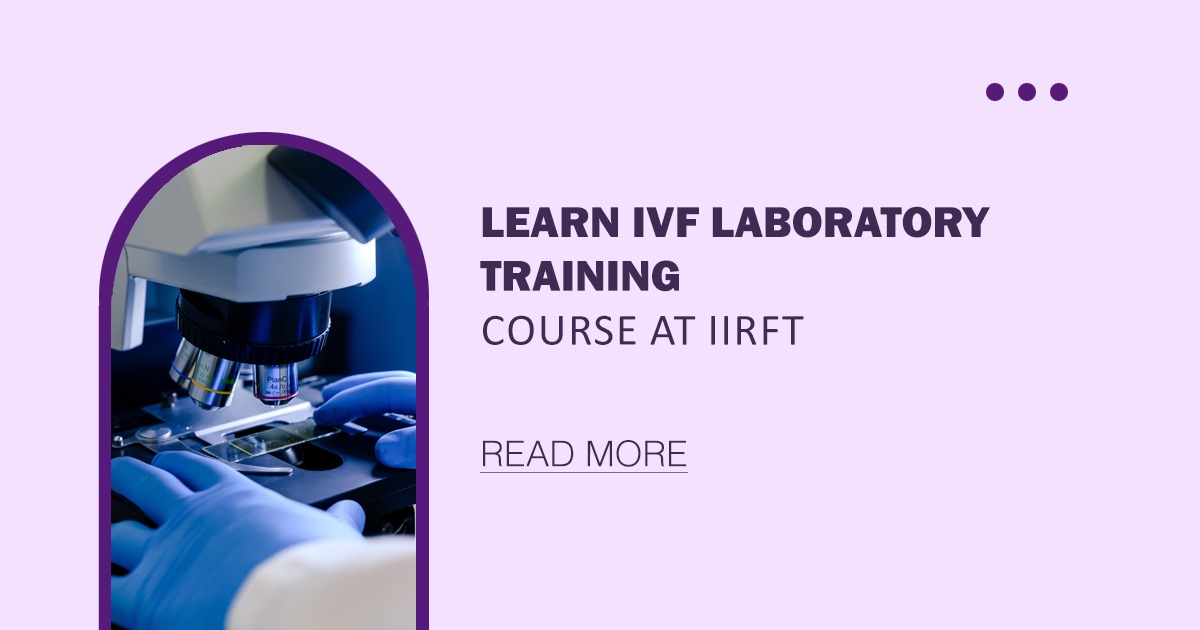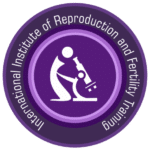
12 May Learn IVF Laboratory Training Course at IIRFT
The IVF Laboratory Training Course is a program that offers important skills and knowledge to work in an IVF lab. It offers theoretical knowledge and practical training to help you with the challenges of assisted reproductive technologies. At IIRFT, you will learn from Dr. Rita Bakshi, a senior IVF specialist and with her expert team.
The team of IIRFT will guide you through the various aspects of IVF lab work. They will ensure that you get the practical knowledge to work in a fertility clinic. In this blog, we will explain everything about the IVF Laboratory Training Course. We will also include its benefits and the course structure.
What is IVF Laboratory Training Course?
The IVF Laboratory Training Course helps students to learn about the technical and scientific aspects of in-vitro fertilization (IVF). It helps students to work in IVF laboratories and teach about the important techniques. It includes embryo culture, sperm processing, egg retrieval, and cryopreservation.
This course will help students to get practical experience in a lab environment. It will also prepare them to handle difficult tasks during fertility treatments. Additionally, by doing this course, individuals can play an important role in fertility clinics and make the treatments successful.
Course Structure and Duration of IVF Laboratory Training
The IVF Laboratory Training Course provides theoretical knowledge and practical skills to students. The course structure covers all the areas of IVF. Here is a basic overview of the course structure and its duration:
- Introduction to IVF and ART: You will learn about in-vitro fertilization and assisted reproductive technologies. You will also learn about the role of IVF laboratories in fertility treatments.
- Laboratory Techniques: You will gain practical experience to handle sperm, eggs, and embryos. You will also learn about the techniques for insemination, culture, and cryopreservation.
- Advanced IVF Procedures: You will learn about advanced laboratory procedures such as ICSI (Intracytoplasmic Sperm Injection), embryo biopsy, and genetic screening.
- Quality Control and Laboratory Management: You will understand the importance of maintaining high standards of quality control in IVF labs. You will also learn how to manage laboratory operations efficiently.
- Ethical and Legal Aspects: You will learn about the ethical and legal considerations in IVF treatments and lab work.
Duration
The duration of the IVF Laboratory Training Course ranges from a few weeks to several months. However, the course duration will depend on the level of certification. The course offers practical experience and helps students to gain practical training in a real IVF lab environment.
Eligibility Criteria for IVF Laboratory Training Course
The eligibility criteria for the IVF Laboratory Training Course ensure that students have the basic knowledge and skills to grow in this field. Here are some general criteria that include the following:
- Educational Qualifications:
- A bachelor’s degree in a related field such as Biology, Medical Laboratory Technology, Biotechnology, or Life Sciences is required.
- Some institutions may also accept candidates who have a background in medical or paramedical sciences.
- Basic Knowledge of Biology: A basic understanding of biology, particularly human reproduction, is important. If someone has knowledge of subjects like cell biology, genetics, and anatomy then it can be beneficial.
- Interest in Fertility Medicine: If you have an interest in reproductive medicine and want to pursue a career in fertility treatments or IVF laboratory work, then you can also apply.
- Age Criteria: Generally, there are no strict age limitations for candidates. However, they must be in good health and able to manage any kind of stress during the training period.
- Medical Fitness: Some programs may need candidates to go through a health check up to ensure they are physically fit for lab work.
These criteria ensure that the participants have all the skills and qualifications to make their career in this field. This also ensures that they are prepared for the technical challenges in fertility treatment procedures.
Career Opportunities After Completing IVF Laboratory Training
There is a wide range of career opportunities in the field of reproductive medicine after doing this course. This training will help you to gain lab skills and theoretical knowledge that are needed to work in fertility clinics and IVF centers.
Here are some common career options:
- Embryologist
- Andrologist
- IVF Lab Technician
- Clinical Research Assistant
- Quality Control Officer
- Lab Manager
Benefits of Studying IVF Laboratory Training at IIRFT
The IVF Laboratory Training Course at IIRFT offers many advantages to those who want to build a strong career in reproductive sciences. The course offers you theoretical understanding and real lab experience. You’ll work with advanced equipment and learn from experienced IVF professionals.
Here are some key benefits:
- Practical Training with real IVF lab procedures and tools
- Expert Faculty, including expert IVF specialists
- Updated Curriculum as per global ART standards
- Small Batch Sizes for better understanding
- Placement Assistance to help you to start your career
- Certifications which are recognized by top IVF centers
Closing Line
If you want to start your journey in the field of fertility science then the IVF Laboratory Training Course at IIRFT is for you. We have expert faculty, practical learning, and industry-relevant training to make you prepared for real-world opportunities in IVF labs. This course will help to shape your future in assisted reproduction.
For any queries or to get started, feel free to email us at contact@iirft.com or call us at +91-95555-444228 / +91-11-40666680.
